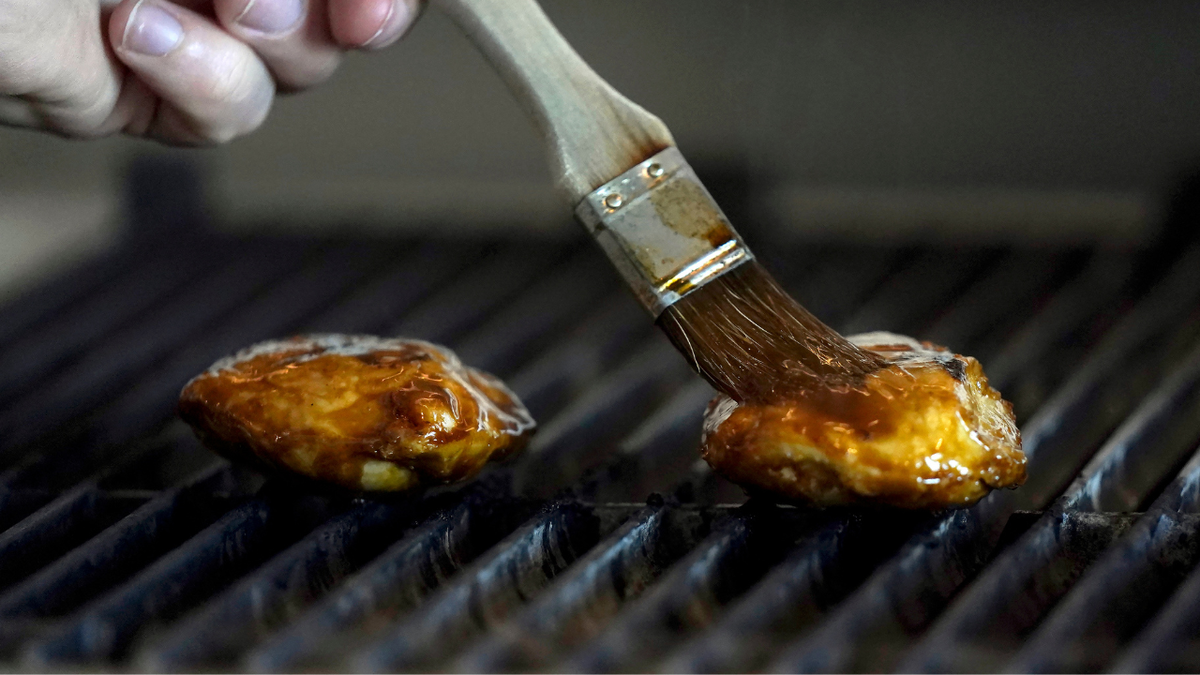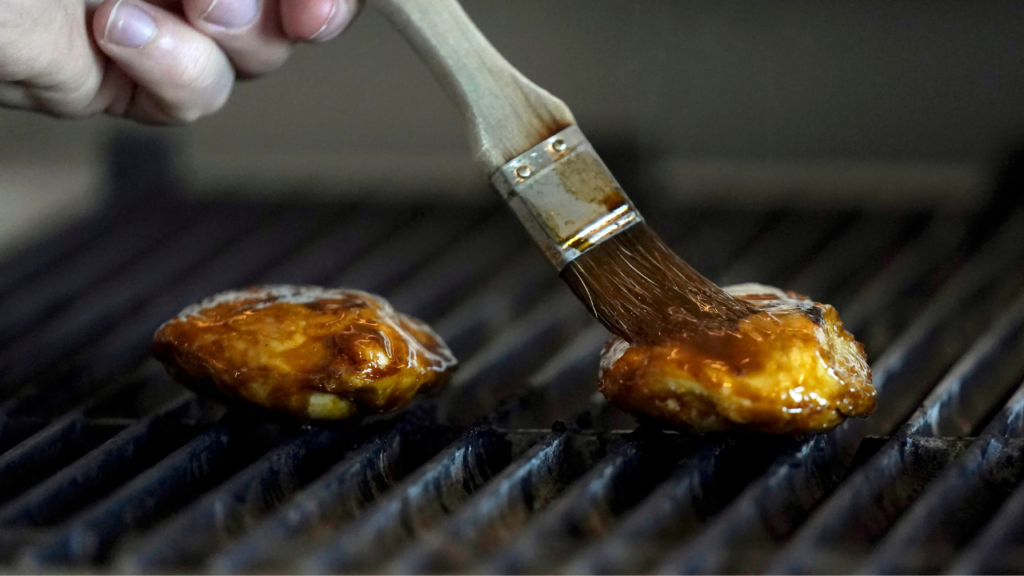- There is currently no lab-grown meat available in any grocery store or restaurant in the United States, and efforts by some state lawmakers aim to keep it that way.
- Florida and Arizona have enacted bans on the sale of lab-grown meat and seafood, while Iowa has banned school purchases.
- While lab-grown chicken was approved for sale in the United States last June, political backlash led to several states proposing bans.
There is currently no lab-grown meat available in any grocery store or restaurant in the United States. That would never be the case if some lawmakers had their way.
Earlier this month, Florida and Arizona both banned the sale of cultured meat and seafood grown from animal cells. In Iowa, the governor signed a bill banning schools from purchasing lab-grown meat. Federal lawmakers have also sought restrictions.
It’s unclear how far those efforts will go. Some cultured meat companies have said they are considering legal action, and some states, such as Tennessee, have shelved proposed bans after lawmakers argued they would limit consumer choices.
Should American families really start eating lab-grown meat? What you need to know about this ‘carefully cultivated’ alternative
Still, it’s a discouraging end to a year that started out optimistically for the cultured meat industry.

Chef Zach Tyndall prepares Good Meat’s cultured chicken at the Eat Just office on June 14, 2023 in Alameda, California. Cultured meats and seafood grown from scratch. In Iowa, the governor signed a bill banning schools from purchasing lab-grown meat. Federal lawmakers have also sought restrictions. (AP Photo/Jeff Chiu, File)
The United States approved the sale of lab-grown meat for the first time in June 2023, allowing two California startups, Good Meat and Upside Foods, to sell cultured chicken. Two fine-dining restaurants in the United States briefly added the products to their menus. Some cultured meat companies are beginning to expand production. One of Good Meat’s products is sold in a grocery store in Singapore.
But before long, politicians began to slam on the brakes. Kim Tyrrell, deputy director of the National Conference of State Legislatures, said lawmakers in seven states have introduced legislation to ban cultured meat.
In the U.S. Senate, Democratic Sen. Jon Tester of Montana and Republican Sen. Mike Rounds of South Dakota introduced a bill in January that would ban the use of lab-grown meat in school lunch programs.
FDA approves lab-grown “good meat” chicken product, second time such authorization has been granted in the U.S.
The backlash is not limited to the United States, with Italy banning the sale of lab-grown meat late last year. French lawmakers have also introduced a bill to ban it.
This backlash is occurring even though lab-grown meat and seafood are far from reaching the market in a meaningful way because they are too expensive to manufacture. Cultivation products are grown in steel tanks using cells from live animals, fertilized eggs or storage banks. These cells are fed a special mixture of water, sugar, fat and vitamins. Once they are grown, they are shaped into fillets, chicken nuggets and other shapes.
The company has been focusing heavily on expanding production to reduce costs and win government approval to sell its products. Now, they’re also trying to figure out how to deal with state bans. Upside Foods has launched a Change.org petition, inviting supporters to “tell politicians to stop policing your plates.”
“Unfortunately, they closed before we even got out of the door,” said Tom Rossmeissl, Good Meat’s global head of marketing. He said the company was considering its legal options.
Supporters of the ban say they want to protect farmers and consumers. They say cultured meat has only been around for about a decade and they worry about its safety.
“Alabamians want to know what they’re eating, but we don’t know what’s in it or how it’s going to affect us,” said Republican state Sen. Williams wrote in an email to The Associated Press. “Meat comes from livestock raised by hard-working farmers and ranchers, not from petri dishes grown by scientists.”
New ‘mystery meat’: Should you eat lab-grown burgers?
But those in the cultured meat industry say their products must pass rigorous government safety testing before being marketed. They say their nascent industry isn’t trying to replace meat, but rather find ways to meet the world’s growing demand for protein.
Rossmeissl said the United States is currently leading the development of cultured meat and seafood, with 45 companies in the field, but that could change. In January, for example, an Israeli company received preliminary approval to sell the world’s first steaks made from cultured beef. China is also investing heavily in lab-grown meat.
“It should shock and worry Americans that we are putting up barriers to something that might be really important to our economy and our food security,” he said.
Republican state Sen. Jay Collins, the sponsor of the Florida bill, noted that the bill does not ban research, just the manufacture and sale of lab-grown meat. Collins said safety is his main motivation, but he also wants to protect Florida agriculture.
“Let’s not rush into replacing something,” he said. “This is a billion-dollar industry. Our cattle, beef, pork, poultry and fish industries feed large populations across the country.”
Ross Messer believes the meat industry is trying to avoid what happened to the dairy industry after the introduction of plant-based alternatives like oat milk. Plant-based milks accounted for 15% of U.S. milk sales last year; that’s up from about 6% a decade ago, according to the U.S. Department of Agriculture and the Good Food Institute, an advocacy group for plant-based and cultured products.
Meat producers did support the bans in Florida and Alabama. Leaders of those states’ Cattlemen’s Associations, an advocacy group for ranchers, stood beside the two governors as they signed the bans into law.
But at the national level, the situation is more complicated, and the meat industry does not support a ban on grown products. Some meat producers, such as JBS Foods, are working on developing their own artificial meat.
Click here to get the Fox News app
“We do not support an outright ban on these products,” said Sigrid Johannes, director of government affairs for the National Cattlemen’s Beef Association. “We’re not afraid to compete with these products in the market.”
The Meat Institute, which represents JBS, Tyson Foods and other major meat companies, sent a letter to Alabama lawmakers warning them that the state’s ban could be unconstitutional because of federal laws regulating meat processing and interstate commerce.
The founder of San Francisco-based farmed salmon company Wildtype traveled to Florida and Alabama to testify against the bills but failed to sway the outcome. They hope someone will challenge the ban in court but say it’s impractical for their small company to take on that battle.
“We are David, and there is a giant Goliath on the other side of the aisle,” said Arye Elfenbein, co-founder of Wildtype.

